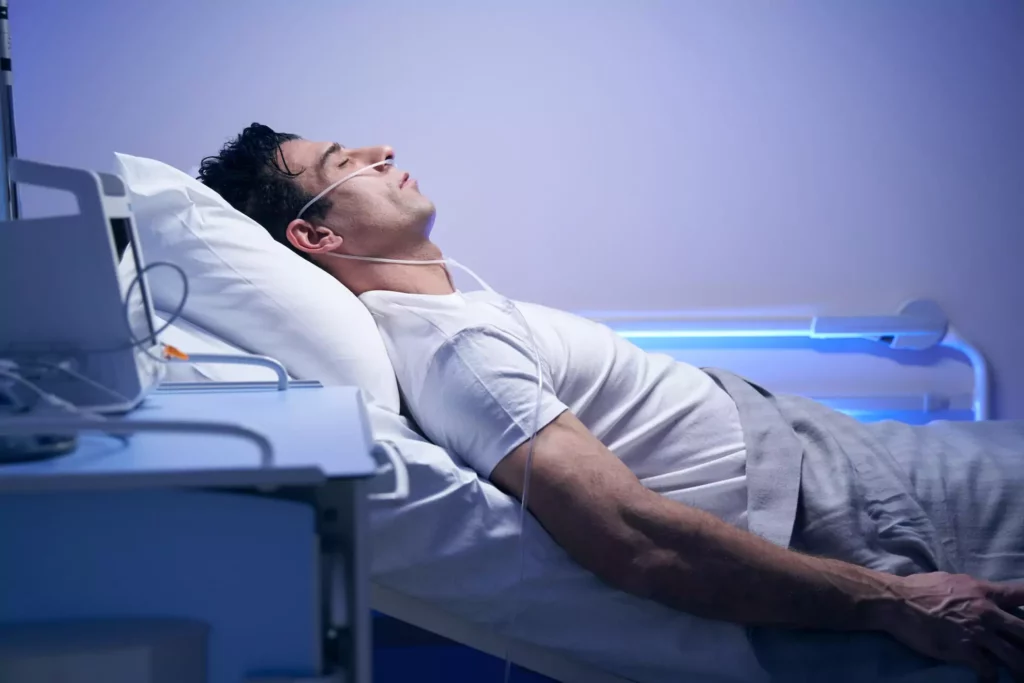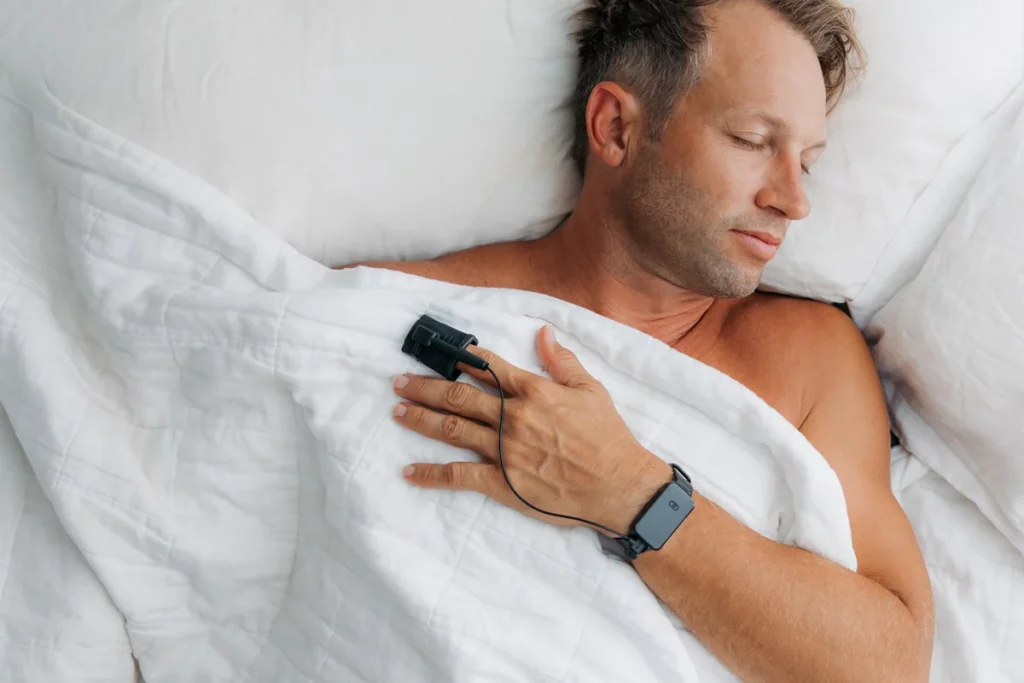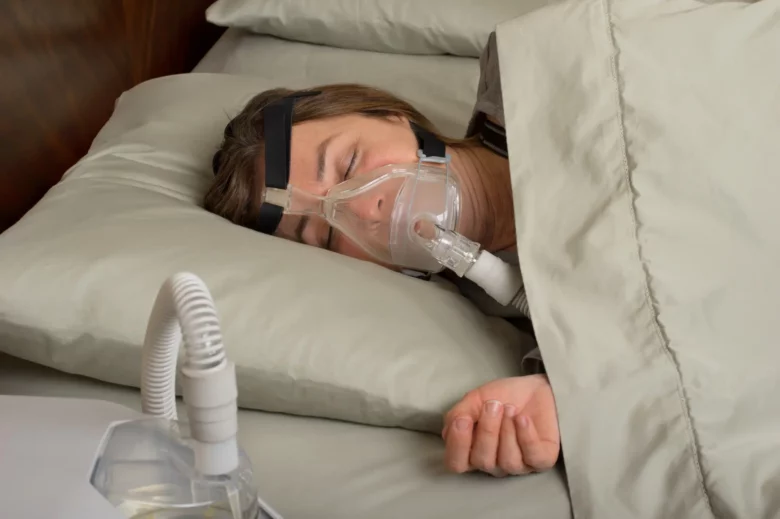Sleep apnea is a sleep disorder that affects millions of people worldwide. In Australia alone, it is estimated that over 1 million individuals suffer from this condition. Sleep apnea can have serious health implications if left undiagnosed and untreated, making sleep apnea tests crucial for early detection and effective management. However, the cost of these tests can vary significantly, and understanding the true expenses involved is essential for individuals seeking diagnosis and treatment.
Understanding Sleep Apnea Cost
By exploring financial assistance programs and cost-effective alternatives, individuals can effectively manage the expenses associated with sleep apnea tests cost Australia and pave the way for better sleep and well-being. It is important to prioritize seeking diagnosis and treatment for sleep apnea, as untreated sleep apnea can lead to various health complications and significantly impact overall quality of life.
What is Sleep Apnea?
Sleep apnea is a complex sleep disorder that affects millions of people worldwide. It is characterized by pauses in breathing or periods of shallow breathing during sleep, disrupting the normal sleep cycle. These interruptions can occur multiple times throughout the night, leading to fragmented sleep patterns and a decrease in oxygen levels in the body. The three main types of sleep apnea are obstructive sleep apnea (OSA), central sleep apnea (CSA), and complex sleep apnea syndrome (CompSA), each with its own unique characteristics and challenges.

Symptoms and Risks of Sleep Apnea
The symptoms of sleep apnea can range from mild to severe, impacting both physical and mental well-being. Common signs of sleep apnea include loud snoring, daytime fatigue, morning headaches, difficulty concentrating, irritability, and episodes of gasping or choking during sleep. These symptoms can significantly affect a person’s quality of life, leading to decreased productivity and an increased risk of accidents due to daytime drowsiness. Furthermore, untreated sleep apnea can have serious implications for long-term health, as it is associated with conditions such as high blood pressure, heart disease, stroke, diabetes, and obesity, underscoring the importance of timely diagnosis and intervention.
The Importance of Sleep Apnea Tests
Diagnosing Sleep Apnea
Proper diagnosis of sleep apnea is crucial for effective treatment. Sleep apnea tests, also known as sleep studies or polysomnography, are conducted to evaluate sleep patterns, breathing, and other physiological parameters during sleep. These tests help healthcare professionals determine the presence and severity of sleep apnea.
During a sleep study, various sensors are attached to the individual to monitor different aspects such as brain waves, heart rate, oxygen levels, and muscle activity. This comprehensive data allows specialists to identify interruptions in breathing patterns, the frequency of apnea episodes, and the impact on the individual’s overall sleep quality.
Benefits of Early Detection
Early detection and treatment of sleep apnea can significantly improve the quality of life for individuals affected by this condition. By addressing sleep apnea, individuals are more likely to experience better sleep, increased daytime alertness, improved cognitive function, reduced risk of accidents, and decreased chances of developing associated health problems.
Moreover, untreated sleep apnea has been linked to serious health conditions such as hypertension, heart disease, stroke, and diabetes. By undergoing a sleep apnea test and receiving timely treatment, individuals can lower their risk of developing these potentially life-threatening conditions, leading to a healthier and more fulfilling life.
Breakdown of Sleep Apnea Test Costs in Australia
Types of Sleep Apnea Tests
There are several types of sleep apnea tests available, and the choice of test depends on the individual’s symptoms, medical history, and healthcare provider’s recommendation. The most common types of sleep apnea tests include in-lab polysomnography, home sleep apnea testing, and split-night testing.
In-lab polysomnography, also known as a sleep study, is conducted in a specialized sleep center where the patient spends a night while various body functions are monitored. Home sleep apnea testing involves the use of portable monitoring devices that the individual can use in the comfort of their own home. Split-night testing combines aspects of both in-lab and home testing, where the first half of the night is used for diagnosis and the second half for treatment with a continuous positive airway pressure (CPAP) machine.
Average Costs of Different Tests
The cost of sleep apnea tests in Australia can vary depending on factors such as the type of test, the location of the testing facility, and the individual’s health insurance coverage. On average, in-lab polysomnography can cost anywhere between $1,000 and $2,000, while home sleep apnea testing is relatively more affordable, ranging from $200 to $500. Split-night testing falls within a similar price range as in-lab polysomnography.
It’s important to note that these costs may not include additional fees for specialist consultations, interpretation of results, or any required follow-up appointments. Health insurance coverage can significantly impact out-of-pocket expenses for sleep apnea testing, with some policies covering a portion or all of the costs. Patients are advised to check with their insurance provider and the testing facility to understand the full financial implications of undergoing a sleep apnea test.
Factors Influencing the Cost of Sleep Apnea Tests
Insurance Coverage and Out-of-Pocket Expenses
The cost of sleep apnea tests can be influenced by an individual’s health insurance coverage. It’s essential to review the terms and conditions of the insurance policy to understand the extent of coverage provided for sleep apnea testing. Out-of-pocket expenses such as deductibles, co-pays, and co-insurance may still apply, so it’s advisable to confirm the details with the insurance provider in advance. Additionally, some insurance plans may require pre-authorization for sleep apnea testing, adding another layer of complexity to the process.
The Role of Healthcare Providers
The cost of sleep apnea tests may also vary depending on the healthcare provider and the location of the testing facility. Different providers may have different pricing structures and fee schedules for sleep apnea testing. It is recommended to consult with multiple healthcare providers and compare costs to ensure the most affordable options are considered. Furthermore, some healthcare providers offer package deals or discounts for bundled services, so it’s worth exploring all available options to potentially save on overall costs.
Moreover, the experience and expertise of the healthcare provider conducting the sleep apnea test can also impact the overall cost. Providers with specialized training and advanced certifications in sleep medicine may charge higher fees for their services. However, opting for a more experienced provider can offer added peace of mind regarding the accuracy and thoroughness of the test results. It’s important to weigh the cost against the quality of care provided to make an informed decision that prioritizes both financial considerations and healthcare outcomes.

Ways to Manage the Cost of Sleep Apnea Tests
Financial Assistance Programs
For individuals facing financial constraints, there may be financial assistance programs available to help manage the cost of sleep apnea tests. These programs can provide financial support or discounted rates for individuals who meet specific eligibility criteria. It is advisable to inquire about such programs with relevant healthcare organizations or government agencies.
One such program is the Sleep Apnea Assistance Program (SAAP), which aims to assist individuals who are unable to afford the full cost of sleep apnea tests. SAAP offers financial aid to eligible applicants, helping them access the necessary diagnostic tests and treatments. The program considers various factors, including income level, insurance coverage, and medical necessity, to determine the level of support provided.
In addition to SAAP, there are other organizations and foundations that offer financial assistance for sleep apnea tests. These include the Sleep Apnea Foundation, which provides grants to individuals in need, and local community health centers that offer sliding-scale fees based on income. Exploring these options can significantly alleviate the financial burden associated with sleep apnea testing.
Cost-Effective Alternatives for Testing
In some cases, depending on the individual’s symptoms and the healthcare provider’s assessment, there may be cost-effective alternatives to traditional sleep apnea testing. These alternatives may include home sleep apnea testing kits, which are typically more affordable than in-lab polysomnography. However, it’s essential to discuss these options with a healthcare professional to ensure their suitability and effectiveness for accurate diagnosis and treatment.
Home sleep apnea testing kits are portable devices that individuals can use in the comfort of their own homes. These kits usually consist of a small device worn on the wrist or finger, which measures various parameters such as oxygen levels, heart rate, and breathing patterns during sleep. The data collected by the device is then analyzed by a sleep specialist to determine the presence and severity of sleep apnea.
While home sleep apnea testing kits can be a more affordable option, they may not be suitable for everyone. Individuals with complex medical conditions or those requiring additional monitoring may still need to undergo in-lab polysomnography. Therefore, it is crucial to consult with a healthcare professional to determine the most appropriate testing method based on individual circumstances.
Learn about sleep test on: Comprehensive Sleep Testing in Sydney

